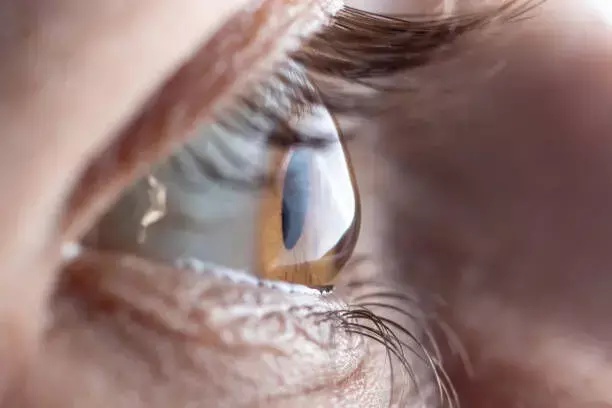- Home
- Medical news & Guidelines
- Anesthesiology
- Cardiology and CTVS
- Critical Care
- Dentistry
- Dermatology
- Diabetes and Endocrinology
- ENT
- Gastroenterology
- Medicine
- Nephrology
- Neurology
- Obstretics-Gynaecology
- Oncology
- Ophthalmology
- Orthopaedics
- Pediatrics-Neonatology
- Psychiatry
- Pulmonology
- Radiology
- Surgery
- Urology
- Laboratory Medicine
- Diet
- Nursing
- Paramedical
- Physiotherapy
- Health news
- Fact Check
- Bone Health Fact Check
- Brain Health Fact Check
- Cancer Related Fact Check
- Child Care Fact Check
- Dental and oral health fact check
- Diabetes and metabolic health fact check
- Diet and Nutrition Fact Check
- Eye and ENT Care Fact Check
- Fitness fact check
- Gut health fact check
- Heart health fact check
- Kidney health fact check
- Medical education fact check
- Men's health fact check
- Respiratory fact check
- Skin and hair care fact check
- Vaccine and Immunization fact check
- Women's health fact check
- AYUSH
- State News
- Andaman and Nicobar Islands
- Andhra Pradesh
- Arunachal Pradesh
- Assam
- Bihar
- Chandigarh
- Chattisgarh
- Dadra and Nagar Haveli
- Daman and Diu
- Delhi
- Goa
- Gujarat
- Haryana
- Himachal Pradesh
- Jammu & Kashmir
- Jharkhand
- Karnataka
- Kerala
- Ladakh
- Lakshadweep
- Madhya Pradesh
- Maharashtra
- Manipur
- Meghalaya
- Mizoram
- Nagaland
- Odisha
- Puducherry
- Punjab
- Rajasthan
- Sikkim
- Tamil Nadu
- Telangana
- Tripura
- Uttar Pradesh
- Uttrakhand
- West Bengal
- Medical Education
- Industry
Dupilumab use in Severe Atopic Dermatitis may induce two types of Ocular Surface Diseases

Two types of Ocular Surface Diseases were found induced by Dupilumab in Severe Atopic Dermatitis, according to a study published in the Ophthalmology and Therapy.
A team of researchers from Lille Catholic Hospitals, Lille Catholic University, Lille, France reported 10 cases of conjunctivitis in atopic dermatitis (AD) patients treated with dupilumab from November 2017 to November 2018 in our institution, who were referred to the ophthalmology department for diagnosis and management of conjunctivitis. The authors also described ocular surface findings in these patients before the first injection of dupilumab.
They observed that:
- During the first 6 months post initiation ofdupilumab, incidence of conjunctivitis was 27% (5/18) in patients treated from November 2017 to April 2018 who had not had ocular examination previously.
- This rate dropped to 12% (3/25) after systematic ophthalmological referral before initiation of dupilumab. Patients who developed conjunctivitis had mean SCORAD score (Scoring Atopic Dermatitis) of 60.4 ± 20 (35–88) and mean EASI score (Eczema Area and Severity Index) of 37 ± 17 (14.6–56).
- Mean age was 36 years (20–51). Most patients had a long history of AD (> 10 years).
- Mean delay of ocular surface inflammation was 3.5 months, ranging from 1 to 8 months.
- One patient had to discontinue dupilumab because of severe follicular conjunctivitis.
- Two clinical patterns of ocular surface diseases were observed: a mild non-specific conjunctivitis with dry eyes, which improved with warm compresses and artificial tears without any recurrence; and a severe dupilumab-induced follicular conjunctivitis without keratitis, which required specific ophthalmological management.
Thus, the authors concluded that the underlying mechanism for the development of conjunctivitis seems to be inflammatory and specific to Atopic Dermatitis (AD) since this side effect was not noted in patients with asthma or nasal polyposis on dupilumab.Reference:
The study Ocular Surface Diseases Induced by Dupilumab in Severe Atopic Dermatitis by Adrien Maudinet, et al. was published in the Ophthalmology and Therapy
doi: 10.1007/s40123-019-0191-9
Dr. Shravani Dali has completed her BDS from Pravara institute of medical sciences, loni. Following which she extensively worked in the healthcare sector for 2+ years. She has been actively involved in writing blogs in field of health and wellness. Currently she is pursuing her Masters of public health-health administration from Tata institute of social sciences. She can be contacted at editorial@medicaldialogues.in.
Dr Kamal Kant Kohli-MBBS, DTCD- a chest specialist with more than 30 years of practice and a flair for writing clinical articles, Dr Kamal Kant Kohli joined Medical Dialogues as a Chief Editor of Medical News. Besides writing articles, as an editor, he proofreads and verifies all the medical content published on Medical Dialogues including those coming from journals, studies,medical conferences,guidelines etc. Email: drkohli@medicaldialogues.in. Contact no. 011-43720751


